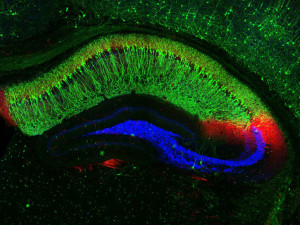
SPOILERS!!!
The next part of the book goes from 1946 until 1952. It is quite revealing how these three women cope with life after the war.
In principle Babe could be called lucky because her husband came back from war alive. Yet, things are far from being perfect. Claude suffers from post-traumatic stress disorder, and apart from the nightmares, the cold sweat, and the terror he feels at night, he is not easy to live with. Babe finds him cold and aloof, and he doesn’t bother to show any affection for her. Even when they make love, he keeps his eyes shut as if he can’t bear looking at her. Also, he drinks too much, and naturally, he is in a constant state of depression. Years pass, and he doesn’t change, and Babe feels that he shuts her out. This is so sad. Claude and Babe were such a lovely couple before the war, and it hurts to read what their relationship is like now.
Babe spends her days fearing that Claude might commit suicide like one of his former army fellows or Mac, Pete Swallow’s brother. Then when Babe is looking after Amy one night, Claude phones her, telling her that he has been a horrible husband in the last years, but things will change and she won’t have anything to worry about. When he rings off, Babe becomes worried, repeating his last words in her mind. So she wraps Amy up in clothes, and speeds home to find Claude reading in bed. When Claude realises why Babe has rushed home, it doesn’t sit well with him. When Babe returns later, Claude is really spiteful and horrible, and he even mentions divorce for the first time in years. Then when they are in bed, Babe realises that maybe the right thing would be to let him be free, and for that reason she wants him to take the first step. To push him in this direction, she finally reveals what happened to her when she was on her way to marry him. Unlike what Babe thought he would do, Claude doesn’t recoil from her, but starts crying and cuddling her. I hope that this means that they will rebuild their bridges, and this confession will make her realise that Babe has also suffered her own particular war.
Grace isn’t having it easy either. One night he has a nervous breakdown, and the neighbours call the police as Grace stands in the middle of her garden, screaming and shouting profanities against Charlie. The police then call Claude and Babe, and they look after Grace and Amy. Mac, Peter’s brother and Charlie’s best friend, is consulted as he is a doctor, and he advises Grace to spend some time in a sanatorium for her nerves. He admits to having been a patient himself when he returned from the war in Asia and walked out of his practice. We know that Mac is in love with Grace, but later he admits to Babe that because he loves Grace, he can’t do to her what Claude is doing to Babe.
After her recovery and returning from the sanatorium, Grace makes a few changes and removes all the pictures from Charlie from the shrine she had turned one of the walls into. Then she starts dating Morris, a doctor friend of Mac’s. Grace is reluctant to go out with him, but they eventually start seeing each other more and more, and they finally get married.
As for Millie, she marries Al and they have two daughters. Al is a good father and husband, and he treats little Jack as if he were his own flesh and blood. Life for Millie seems to be happy and perfect. Yet, I think that Millie is also struggling with her past and Pete’s absence in her own way. Actually, there is no trace of Pete’s presence in her life in the house, and even though Al tells her that she should have some photographs of her late husband around the house for Jack’s sake, Millie refuses. All her mementos, letters, and photographs of Peter have been in a box for years, and even though I think Millie appears to be fine, deep down she is really struggling, and I think that she hasn’t really mourned for Pete. Maybe she is afraid of pain, so ignoring that Pete was so important for her at some point is a way to defend herself.
What a lovely book! When I started, I didn’t even know what the novel was about, so I had few expectations. Now I have to say that it has been a great, pleasant discovery.
Advertisements Share this:




![MV5BMTg0NjkwNTY0OV5BMl5BanBnXkFtZTgwNzAyMzUyMDI@._V1_SX1777_CR0,0,1777,755_AL_[1]](/ai/096/431/96431.jpg)